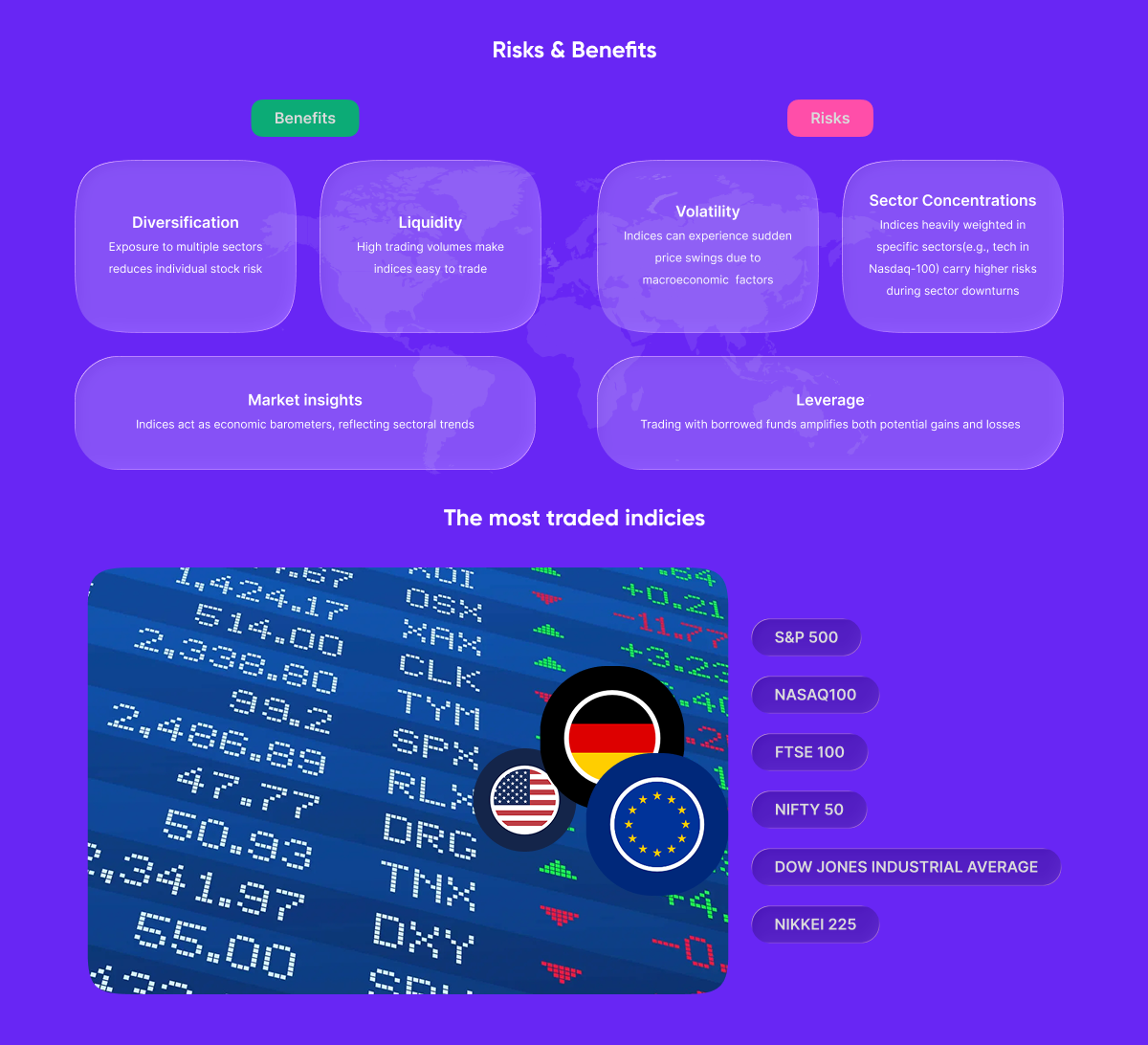Indices are financial benchmarks that describe how a specific group of stocks is currently performing. Rather than owning stocks in several companies and trading them, you can instead set up contracts that allow you to make financial bets on the performance of entire industries and markets. Famous indices you may already be familiar with include DAX, FTSE 100, and S&P 500.
Each index is a quantitative description of how a particular market, sector, or industry is performing from an economic and financial point of view. Many major economies around the world have indices that every elite trader will be highly familiar with:
A skilled index trader will trade a variety of indices over multiple timeframes, allowing them to diversify their portfolio and derisk their positions. They may also take up positions in specific companies within each index if they feel there is an additional opportunity to make a profit. This is known as stock trading.
Each index is calculated in a different way depending on how it was first defined. For example, the Nikkei 225 is a weighted average of the Tokyo Stock Exchange’s 225 best-performing companies. The composition of the index is reassessed twice a year to ensure it remains economically relevant. Other indices are simple averages of the share price of the companies that make up a specific market sector. Traders will need to know how the indices they trade are calculated to understand how they will be impacted by changes in the market.

Indices give traders and financial analysts the ability to see how a market is performing at a glance and to then profit if they are able to predict its future behaviour. A detailed understanding of how an index is likely to perform gives traders the ability to take out contracts where they can make financial bets on whether its value will rise or fall over a set timeframe.
Reading our new guide on how to trade indices is the next step to take. It will introduce you to the mechanics of taking up new positions and making trades, as well as the key strategies that every index trader needs to know about.
When you are ready to start placing trades, Eurotrader is a world-leading index trading broker that is tightly regulated at every level. Connecting with our experts will allow you to start trading and taking up leveraged positions.
Eurotrader is a brand name used by Eurotrade International Ltd, a company registered in Mauritius with Business Registration Number 197389 GBC and registered address at 3 Emerald Park, Trianon, Quatre Bornes 72257, Republic of Mauritius ,authorized and regulated by the Mauritius Financial Services Commission (License Number GB22201125 ) as an Investment Dealer. Risk Disclaimer
CFDs are complex instruments and come with a high risk of losing money rapidly due to leverage. You should consider whether you understand how CFDs work and whether you can afford to take the high risk of losing your money. Read our full Risk Disclosure. The information on this site is not directed at residents of United Kingdom, Canada, Japan, Australia, the United States, Belgium or any particular country inside the EU and is not intended for distribution to, or use by, any person in any country or jurisdiction where such distribution or use would be contrary to local law or regulation. This website uses cookies to provide you with the very best experience and to know you better. By visiting our website with your browser set to allow cookies, you consent to our use of cookies as described in our Legal.
Copyright © 2018 – 2025 Eurotrader, All rights reserved.